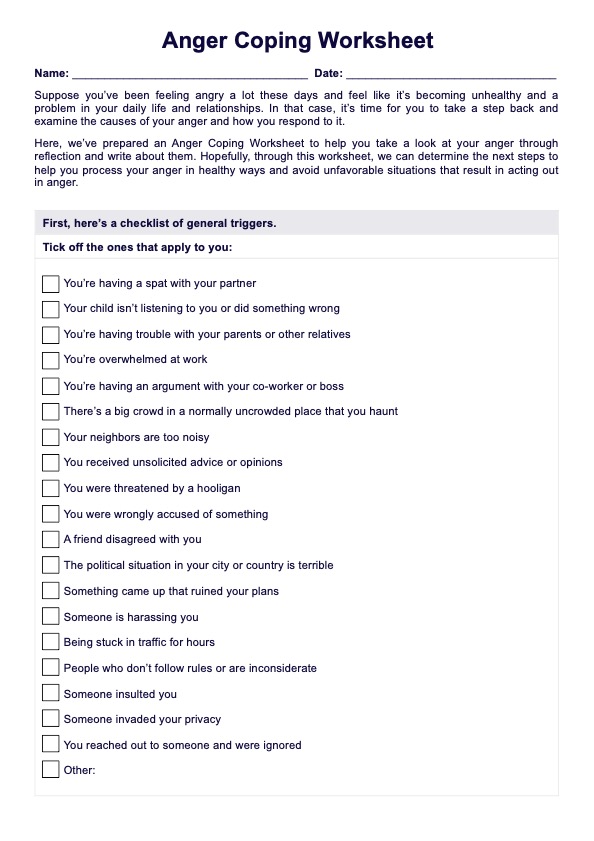An Anger Coping Worksheet is a nifty way for clients to step back, examine the different things that trigger their anger, and hopefully find avenues and solutions to combat anger.

Anger Coping Worksheets
Help your patient with anger management by having them use this anger coping worksheet from time to time!
Anger Coping Worksheets Template
Commonly asked questions
Anger management therapists issue these to their clients to help guide them through their anger management process. Clients will engage with this tool the most because they will use it to track what has made them angry and what they could do differently to avoid unfavorable situations caused by their anger.
An anger management therapist can issue an anger coping worksheet to their clients during their anger management processes. The client will engage with the worksheet when prompted by the therapist. Or, in the case of this Anger Coping Worksheet, they will engage with it on their own since it's a log of their bouts with anger.
EHR and practice management software
Get started for free
*No credit card required
Free
$0/usd
Unlimited clients
Telehealth
1GB of storage
Client portal text
Automated billing and online payments











